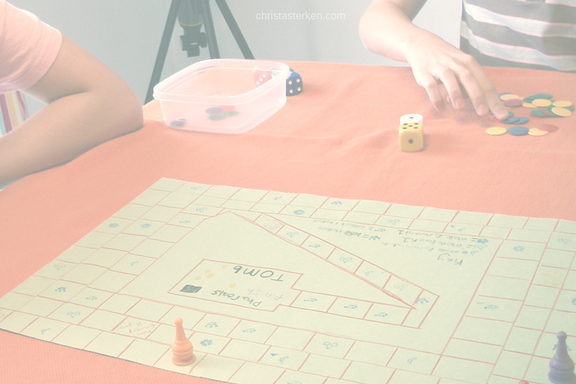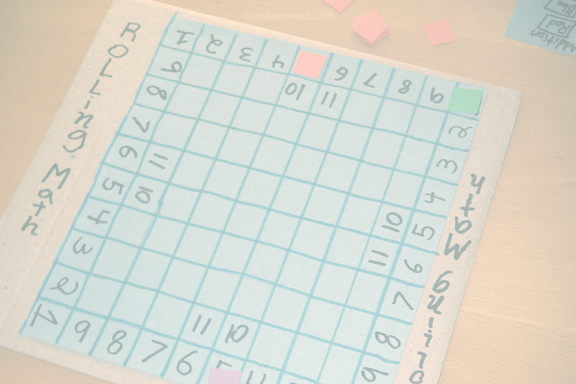Is your child struggling with math? Here are fun alternatives to help

Is your child struggling with math?
What 4 letter-word can strike a homeschooling mom’s heart with dread? Make her want to start crying before her child beats her to it? What sets a parents nerves on edge when their child gets off the bus, and pulls out homework she doesn’t know how to do herself?
Math.
I feel your pain mamas. Girl, I mean I FEEL your angst. Math is the #1 things moms seek out educational tips from me about. It is hard when your child struggles to learn.
Good news for you– there are some ways to make learning numbers less of a battleground between you and your resistant student. Ideas to give them less of a dislike at least, and maybe even a stronger aptitude for math!
The trick is…to make learning fun again.
Struggling with math facts
Let go of something that isn’t working.
We spent 3 years trying to teach times tables. The same thing, with the same lackluster results. Oh, how upset and discouraged my daughter would get!
Her enthusiasm for learning faded with each year when the math curriculum was pulled out. She just didn’t “get it”.
It is disheartening to try everything to help our young learners, and have nothing work. After a few years of this, I decided to take a radically different approach to her education…
We took a year off from math.
Yep, no curriculum. Was it scary? Yes. Was it the right decision for this child? Definitely. Maybe this unconventional idea will help your distressed child turn around their views on math?
Alternatives for children who struggle with math
I want to share something that nobody told me, and I desperately needed to hear.
It is a wonderful GIFT to alter our children’s education to fit their needs. There is no one way, right way curriculum and teaching method that works for all kids.
You have the legal right to teach your student to their skill level. To ignite learning to fit their style (it is an awesome thing to understand their learning styles).
That first school day? Her face had a smile to light up the sky, when she found out math wasn’t a mandatory part of our lessons. She was incredulous, and honestly so was I. It just wasn’t done!
Here is the secret…we did the math, most days…but it was pieced in with fun so it didn’t feel like a struggle. I created a year of learning games and practical math exercises, but to her?
It was just disguised as fun.

4 fun ideas to overcome difficulties in math
- No math books. Now, if this feels stressful to you? Remember what a leap of faith it took to homeschool your kids in the first place. We are heading for a long stretch of a race, not a short sprint. Big picture? This can be a boost to get over the hump of frustration. Trust the process, and see how many ways you can work in math concepts with everyday activities, or better yet, other school subjects
- Play math games. There are wonderful options out there that help a child use practical math skills without the monotony of a textbook. Some favorites were Muggins, Knock Out, Yahtzee, Payday, and Monopoly. Find games that naturally require addition and subtraction, so that it becomes an automatic response to use those mental skills. Then work up to games with harder challenges, and games have tons of other advantages built right in! They might even enjoy creating their own game
- Let them move. For the child that needs to “move” to learn, get a deck of index cards. Write numbers on them and make up silly stories that require them to hop, jump and wiggle to the right answer. Ask them to make up the games, they feel ownership AND practice skills without the drills
- Practice real-life numbers. Take the kids to the store and ask for their help in determining the costs of items they need. Explain sales and see if they can figure out discounts. Give them coupons to purchase a product. As they mature, give them a budget and a list. Bake and let them see how fractions work in real-time measurements. The more exposure to seeing numbers in action, instead of on a sheet of paper, helps them cement the practicality

Children struggling with math need to move at their own pace
Stay strong in the resolve to give this time to work.
Specify a period and stick to it! Don’t ask for opinions from a bunch of friends, or see what all the other moms are doing. You know your child best.
When the time is right, introduce math programs that aren’t your typical timed tests and workbooks for this type of learner. I’ll share a list of our favorites, but first, are you wondering how the story ended for my struggling math student?
The following year, we found a highly unconventional program that really clicked for her. It seemed too “easy” to me as her teacher, but it worked. Well. She quickly passed me up in knowledge and ability. Does she love math now?
That would be a strong NO, but she is quick with her numbers, has a strong ability in practical math skills, and passed her SAT/ACT college entrance exams with solid, respectable scores.
Don’t be afraid to go against the flow.
Build out-of-the-box math confidence
Excitement for learning might just be found in the place just over the line of ordinary.
Forging our own path was just right for this child. Trust your gut. If your child still struggles? Perhaps there is a different problem (with great tutors) that can be read about here.
We allowed our children to go at a pace that was tailored to their needs. There is no one perfect template.
Committing for the long haul sometimes means doing things WAY out of the box, like the time we did five-year high school.
You are doing great work, raising up these children. It isn’t easy, but by adding fun? It makes the journey a delight instead of a drag.

P.S. If you are just thinking about how to start homeschooling, read this post
Educational math alternatives
- Shut the box game Also check out Muggins, Knock out, and Yahtzee
- Games for math













We are going to try Life of Fred this year. And I’m NOT going to worry about drilling facts. My guy is incredibly logic smart. I’m hopeful that by taking some time to focus on the logic behind math, the where and when it matters part, and less on the facts piece…we’ll have a less tearful year. Here’s to hoping!
I 100% believe he is going to thrive, such a smart kid! It’ll be fun to follow along with you and see how things play out.
Thanks for this post, Christa! This is so encouraging to hear. One of the things we have decided is that we want our kids to love learning MORE than we want them to pass tests and complete worksheets. And thats the beauty of homeschool we can give them (and ourselves) a break from that pressure to perform and get them back to a place of natural curiosity and learning.
Wise words Jessica! They can always fill a gap in education, but what a true gift to encourage the love of actual learning! Curiosity doesn’t equate to “bored” very often 😉